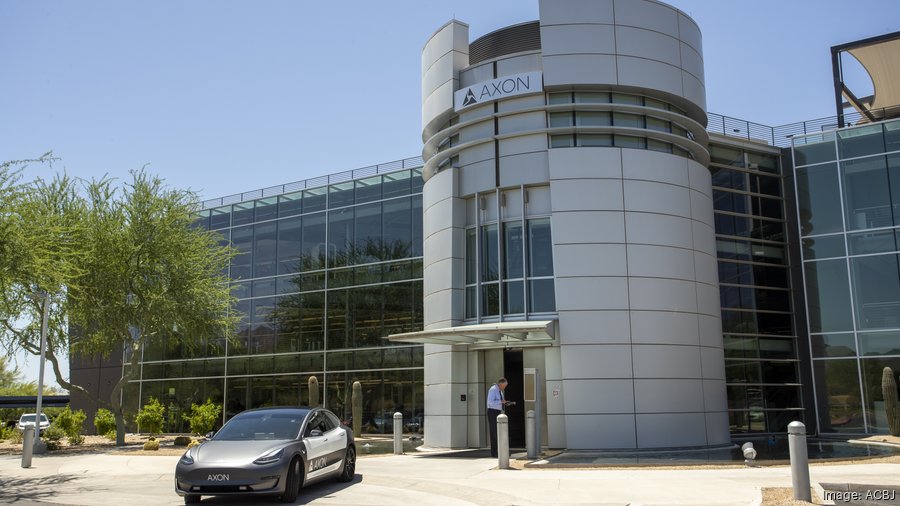US college grads get older, shift workplace trends
Feb 23, 2012, 9:03 PM
Associated Press
WASHINGTON (AP) – Americans 60 or older are more likely than ever to have college degrees, helping redefine work and retirement as educated baby boomers swell the senior population at rates faster than young adults earn diplomas.
Census figures released Thursday highlight changes in U.S. college completion, which reached a high of 30.4 percent last year. It comes amid increasing shares of older Americans in the workplace and record drops in employment for young adults, an age twist that is historically unprecedented.
“This is an important milestone in our history,” Census Bureau Director Robert Groves said, referring to the increase in people with college degrees across all age groups. “The more education people have the more likely they are to have a job and earn more money, particularly for individuals who hold a bachelor’s degree.”
The college gains are making it easier for older Americans to work later in life because they are more likely than their parents’ generation to hold higher-skilled jobs, which are seen as harder to replace. Due to increased life expectancy, rising health care costs and other financial incentives to keep working, the government projects that 1 in 4 workers by 2020 will be at least 55 years old _ up from 1 in 5 today.
“I don’t know what I’d do if I didn’t work. It’s just so enlightening, and I love all the people I work with,” said Lillian Gourley, 83, of Southbury, Conn. Spending much of her career in advertising, she decided eight years ago to return to the workforce after retirement to help pay off bills in between her daily activities of gardening, socializing and visits to her daughters and grandchildren.
Based on her work experience, she was quickly offered a job at a local newspaper as a receptionist, a position she held throughout the economic downturn. Gourley says she enjoys interacting with younger coworkers _ the “kids” _ and believes the workplace as a whole is enriched by having a wide group of employees who bring energy, know-how and wisdom to their jobs.
“As long as I can, I want to work, and when I stop enjoying it then I’ll stop,” said Gourley, who earned an art degree in 1949. “I just can’t imagine sitting around at home, doing nothing and complaining.”
Demographers say the improved job fortunes for educated, older Americans are commonplace.
“Older workers gained the most and lost the least over the recession, and education was an important factor,” said Andrew Sum, director of the Center for Labor Market Studies at Northeastern University in Boston, citing their combination of experience and training.
He noted that the biggest job losses were among less-educated younger men, who struggled with reduced demand for blue-collar jobs in construction, manufacturing and transportation. “Employers for the most part over the last decade did not hire young workers, and when times got bad, they did not lay off as many older workers.”
Currently, about 26 percent of Americans 60 and older have a bachelor’s degree, up from 13 percent in 1992 and now an all-time high. Educational gains among older Americans are being fueled by waves of aging college graduates who attended school in higher numbers in the 1950s, 1960s and 1970s following government expansions of a military G.I. bill that helped pay tuition costs. Increased enrollment in adult continuing education programs also have bolstered the gains.
Increased education levels among older Americans is a shift from their parents’ generations, who didn’t need a college degree to find a good-paying job in manufacturing or construction. Much of that blue-collar work, however, has since moved overseas, driving down wages for the fewer jobs that remained in the U.S.
In the last five years, the number of college graduates between the ages of 60-69 climbed nearly 55 percent, more than double the rate of increase for younger age groups, including the 25-29 age group, whose number of college graduates rose 20 percent to 6.9 million. Roughly 78 million baby boomers, who were born between 1946 and 1964 and began turning 65 last year, are now aging into the senior ranks.
The increase in college graduates is prominent among women 60 and older, whose shares with bachelor’s degrees jumped from 10 percent in 1992 to more than 21 percent. The numbers were lifted by many students who opted to pursue college degrees following the 1960s women’s movement.
Across all age and race groups, Americans holding at least a bachelor’s degree increased last year to 30.4 percent; that’s up from less than 25 percent in 1998 and just 5 percent in 1940. While younger women 25-29 are more likely than young men to complete college, 36 percent to 28 percent, across all age groups women still lag men slightly, 30 percent to 31 percent.
William H. Frey, a demographer at Brookings Institution who reviewed the data, said the latest trends show the senior population will be “a major player in the labor force of the future.”
“The fact that a substantial segment of today’s older workers are more educated and experienced accounts for their taking fewer employment hits,” he said. “It suggests the wisdom of formulating government policies and incentives to keep these well-educated seniors in the labor force beyond the traditional retirement age of 65.”
Other findings:
_Employment among young adults 16-29 was 55.3 percent as of 2010, compared with 67.3 percent in 2000; it’s the lowest since the end of World War II. In contrast, employment rates for those 55 and older increased over the last decade. Labor force participation rates also jumped eight percentage points over the last decade for Americans ages 55-74, from 42.5 percent to 50.6 percent, while rates for younger age groups declined.
_By race and ethnicity, 50 percent of Asian-Americans ages 25 and older had at least a bachelor’s degree. That’s compared with 34 percent for non-Hispanic whites, 20 percent for blacks and 14 percent for Hispanics. While most age and race groups saw increases in college attainment from the previous year, one notable exception was Hispanic males 25-29: their share slipped from 10.8 percent to 9.6 percent.
_Men who held a bachelor’s degree (but no advanced degree) had average earnings of $70,000; for women, it was $45,000.
_People with a bachelor’s degree had lower rates of unemployment than those with less education in every month from January 2008 to December 2010. Unemployment rate for those who lacked a high school diploma reached a peak of 17.9 percent in February 2010; in the same month, unemployment for people with a bachelor’s degree reached a high of 5.9 percent.
_People whose highest level of education completed was high school had average earnings of $31,000 in 2010. For those whose highest degree was a bachelor’s degree, the average was $58,000.
___
Online:
(Copyright 2012 The Associated Press. All rights reserved. This material may not be published, broadcast, rewritten or redistributed.)








